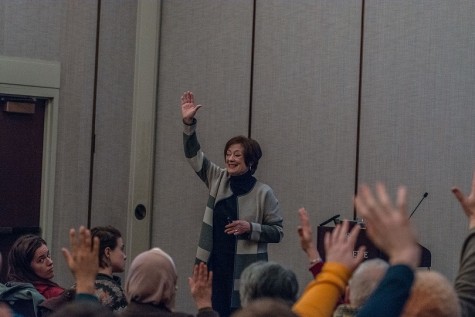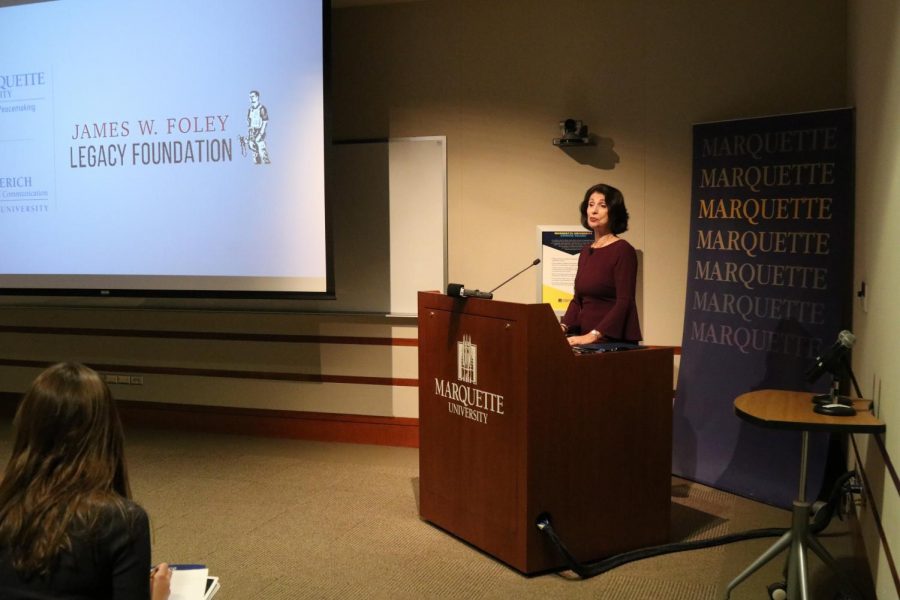
University of Notre Dame professor Kristin Shrader-Frechette visited Marquette Tuesday to suggest ways Milwaukee residents can improve the environment in low-income areas.
Shrader-Frechette, who teaches philosophy and biological sciences, discussed environmental racism – when poorer, minority communities have worse environmental quality than wealthier, non-minority places. She said Milwaukee County, home to many low-income minority neighborhoods, is in the 10 percent of the most carcinogenic counties in the U.S.
Carcinogens and other pollutants like them increase the likelihood for certain diseases such as ADHD, Alzheimer’s and various cancers, according to Shrader-Frechette’s presentation. Eating organic food, driving emissions-reducing cars and incinerating waste are some of her suggestions of ways to reduce environmental harm.
“The economy can’t be healthy when you sabotage the brains of your workforce,” Shrader-Frechette said.
She also suggested that people take action to combat environmental racism by publishing information about it in newspapers and faculty research, testifying at government hearings and volunteering or doing service learning work in affected communities.
“There are things in this society that should make us all angry and spur us to action,” she said, noting that she believes people will take action by considering the poor and Catholic Social Teaching.
Anita Hoffman, a junior in the College of Arts & Sciences, said she appreciated that Shrader-Frechette’s presentation provided statistics and clear ways to take action.
“I liked how she gave real life things that we can do,” Hoffman said. “Sometimes I feel like we have motivational speakers that don’t address the things we can actively do within our community.”
Louise Cainkar, associate professor of social welfare and justice, echoed Hoffman’s opinions.
“I liked the specificity of the toxins and their origins and the connection to driving and fossil fuels, and the ways we can actually make changes in our own lives and our classes,” Cainkar said.
The main opposition to working on environmental racism that Shrader-Frechette hears is that it would cost too much money to clean up certain areas. However, she said it is an important issue to address because young children are hurt by a poor-quality environment more than adults since their bodies are still developing.
“The pollutants we impose mainly on children of color (…) will be imposed upon people for generations to come,” she said.
Cainkar said she likes the idea of having classes incorporate service learning programs that combat environmental racism.
“It plays into something I’ve already been thinking about, which is introducing the subject of throw-away goods and garbage as a social justice issue,” Cainkar said. “I thought they were good ideas, but I just have to develop them further in my thinking.”
The event was part of the Distinguished Peacemaker Series, a program organized through the Marquette Center for Peacemaking.

